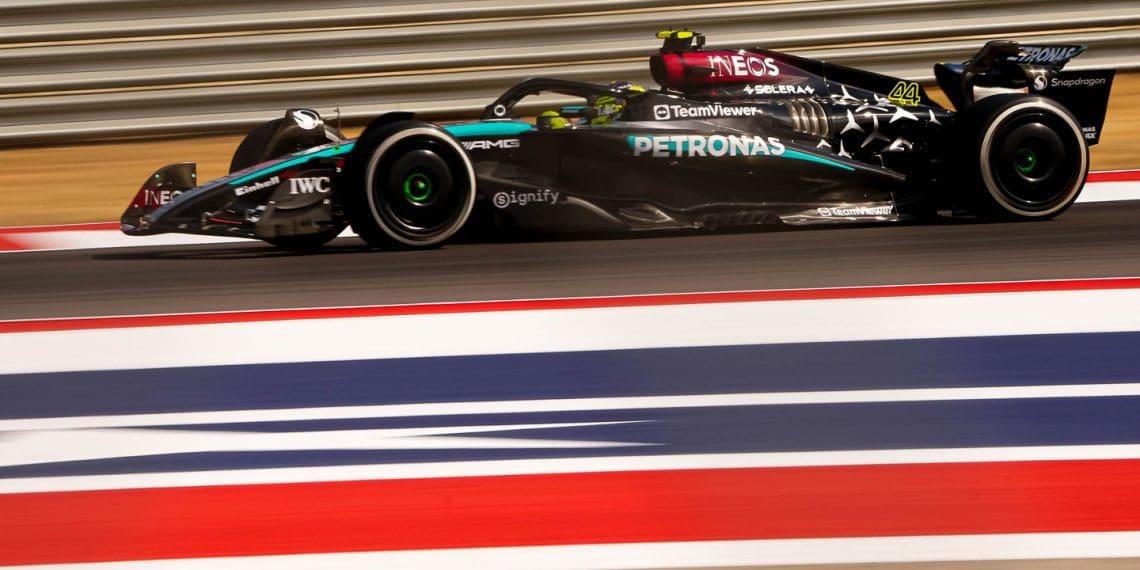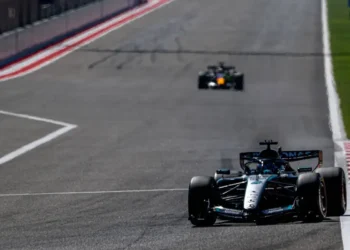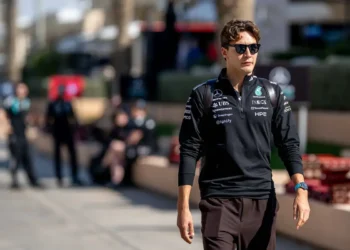Mercedes left the United States Grand Prix weekend battered but not broken, as boss Toto Wolff stood firm, defending the team’s status as F1’s “underdog” and expressing confidence despite a disappointing performance at the Circuit of the Americas. The Silver Arrows came into Austin optimistic about a significant upgrade package aimed at restoring their race-winning edge but were soon dealt a reality check.
George Russell, running the old-spec W15, initially offered a glimmer of hope, qualifying second in the Sprint. However, the weekend quickly soured as he crashed out of qualifying and struggled to match the pace in the race. Meanwhile, Lewis Hamilton, driving the updated W15, saw his race end prematurely after a spin into the gravel, which he partially attributed to the new developments.
Despite the bruising results, Wolff remained resolute, denying that the upgrades themselves contained a “fundamental issue” and insisting that Mercedes is still on track for future success. The Austrian conceded that the squad’s expectations need to be tempered as the season draws to a close, acknowledging that the team is now in “underdog status” and may not return to its summer break form immediately.
A Data-Driven Analysis
Wolff emphasized that the key to understanding Mercedes’ struggles lies in data analysis. He pointed out the disparity between their early weekend pace, particularly on Friday, and their disappointing qualifying and race performances. The fluctuating form has left many scratching their heads, but Wolff sees this as part of the learning process.
“I think this is a data-driven sport, and there will be lots of digging between why we were fastest on Friday evening and why not anymore in qualifying the next day,” Wolff explained. “It’s not concerning for me. It’s just where we are—we are back to underdog status.”
Mercedes Adjusts Expectations
Wolff’s statements reflect a shift in Mercedes‘ approach as they grapple with the realities of their current position in the F1 pecking order. He admitted that they are no longer coming into race weekends expecting to fight at the front, but rather, they are managing expectations and using the remaining races as a testing ground for 2025.
“We are not back to the pre-summer situation,” Wolff admitted. “It’s not about coming into the weekend and thinking, ‘we’re the fourth team on the road, how are we turning this around to be third or second?’ We’re managing our expectations for the rest of the year, seeing it very much as a test.”
The Upgrade Conundrum
While the new upgrade package has raised questions, Wolff is adamant that the parts themselves are not the issue. Instead, he highlighted the interactions between the different elements of the car, suggesting that the inconsistencies were not a result of the upgrades alone but rather how they worked within the overall package.
“In a way, I said I’d like to have two scenarios that help us move forward: either everything works, and the car is quick, or we find inconsistencies and know what needs to be fixed,” Wolff explained. “The upgrade per se is fine—it’s just the things that interact with each other that create situations triggering such inconsistent behavior.”
Looking Ahead to 2025
Despite the setback in Austin, Wolff is confident that Mercedes is on the right path. He remains focused on extracting valuable data from the remaining races to help steer the team in the right direction for 2025. While the current season may not deliver the results fans have come to expect from Mercedes, the long-term vision remains intact.
The team will need to address the inconsistencies that have plagued them, but Wolff’s calm demeanor suggests that they are still playing the long game, with 2025 in their sights.
As the season enters its final stretch, Mercedes fans might need to adjust their expectations, but with Wolff at the helm, the team is still firmly focused on bouncing back from this underdog phase.










